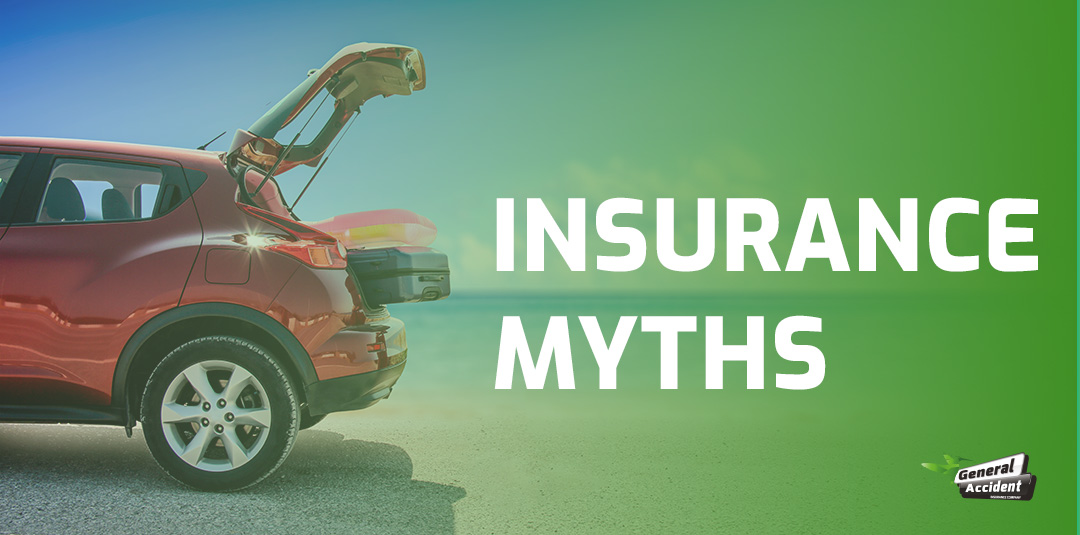Understanding the Importance of Insurance in Barbados
Life can be unpredictable. Unforeseen events can lead to financial loss. At GenAc Barbados we understand there are many factors that persons can face such as the loss of a job, family suffering, or hospitalization. As a result, you can experience severe anxiety if you do not have a proper safety net for yourself, your loved ones, or your bank accounts. As a business owner, you too are at risk of theft, property damage or loss of goods. Investing in an insurance policy is a great choice that someone can make in their life.
The Cambridge Dictionary defines insurance as an “agreement in which you pay a company money and they pay your costs if you have an accident, injury etc.” In this blog post, we will review the importance of insurance in Barbados.
Understanding the Importance of Insurance in Barbados
According to the Central Bank of Barbados, the insurance sector is the largest financial industry in Barbados after banking. Established in 1840, it has channelled savings into productive economic areas. After Barbados gained independence, insurance sector regulation began in 1972 with the first Insurance Act. This was followed by a second Insurance Act in 1996, aimed at enhancing policyholder protection and expanding regulatory measures. The domestic insurance sector has steadily grown and remains well-established.
Types of Insurance in Barbados
According to the Central Bank of Barbados, the insurance sector is the largest financial industry in Barbados after banking. Established in 1840, it has channelled savings into productive economic areas. After Barbados gained independence, insurance sector regulation began in 1972 with the first Insurance Act. This was followed by a second Insurance Act in 1996, aimed at enhancing policyholder protection and expanding regulatory measures. The domestic insurance sector has steadily grown and remains well-established.
Auto Insurance
Auto insurance in Barbados is designed to provide financial protection in the event of accidents, damage, or theft involving your vehicle. At GenAc Barbados we provide various types of auto insurance coverage which include:
- Bodily injury and property damage liability coverage for damage caused to other people or property.
- Personal injury protection to cover medical expenses and other damages.
- Collision and comprehensive coverage for damage done to your vehicle in collisions, and in non-collisions (i.e., fire, vandalism, or theft).
Health Insurance
In 2008, the Pan American Health Organization (PAHO) reported that 25% of Barbadians were covered by health insurance. Health insurance in Barbados is crucial for managing medical expenses and accessing healthcare. The main types are:
- Private Health Insurance: Covers hospitalization, specialist consultations, prescription drugs, and outpatient care.
- Public Health Insurance: Provided by the government through facilities like Queen Elizabeth Hospital, offering basic services with some out-of-pocket costs.
- Supplemental Health Insurance: Enhances public coverage or provides access to private healthcare services.
Home Insurance
Home insurance in Barbados on the other hand is designed to protect property owners from financial loss due to various risks. GenAc Barbados offers property insurance to suit the needs of both home and business owers.
Types of Coverage
- Building insurance covers structural damage to your home from events like fire, hurricanes, or vandalism, and may also protect additional structures such as garages and fences.
- Contents insurance: protects personal belongings inside your home, including furniture and electronics, from theft or damage. high-value items like jewellery may need extra coverage.
- Liability insurance: covers legal costs and claims for injuries or property damage on your property, plus medical payments for injuries.
- Additional living expenses: Provides coverage for temporary housing and extra costs if your home is uninhabitable due to a covered event.
Business Insurance
The right business insurance policies help you to protect your business from unforeseen mishaps. From an injured employee, fires, or natural disasters to a vehicular crash, business insurance can protect you from financial loss in the event of a crisis or accident.
Types of Business Insurance
- Public Liability Insurance covers claims from the public for injury or property damage caused by your business.
- Professional Indemnity Insurance protects directors and professionals from losses due to errors, negligence, or breaches of duty.
- Business Interruption Insurance compensates for lost income and extra costs if an unexpected event halts operations.
- Contractor’s Insurance covers damage to construction projects, equipment, and third-party liabilities.
- Buildings and Contents Insurance protect against damage or loss of property and stock.
- Employer’s Liability and Workers’ Compensation cover work-related injuries and illnesses, while Shipping Insurance covers goods in transit.
Why Insurance Matters
We’ve highlighted five types of insurance currently available in Barbados and their benefits. If you are not yet convinced, here are a few additional reasons why insurance matters:
- Financial Safety Net: Insurance offers crucial protection against unforeseen events, ensuring your finances stay intact and providing peace of mind.
- Legal Compliance: It helps you meet legal obligations, avoiding potential fines or legal troubles.
- Risk Management: By mitigating risks, insurance shields you from significant financial setbacks, making it a smart strategy for managing life’s uncertainties and protecting your assets.
Advantages of Comprehensive Coverage
Taking the steps to fortify yourself and your possessions against potential loss is wise but all coverage options are not made equal. While ultimately your coverage should depend on your specific needs, comprehensive coverage boasts a host of benefits worth considering.
- Shield from Surprises: Comprehensive insurance guards against unexpected events, offering a safety net when you need it most.
- Emergency Backup: Provides crucial support during crises, ensuring you’re covered when emergencies strike.
- Asset Protection: Safeguards your valuable assets and investments, giving you peace of mind and securing your financial future against unforeseen losses.
Choosing the Right Insurance Provider
When selecting an insurance provider, focus on reputation—choose a company with a solid track record of reliability and trustworthiness. Evaluate their coverage options to ensure they offer plans that meet your specific needs and provide comprehensive protection. Assess their customer service by looking for providers known for responsive support and easy claims handling. In Barbados, compare different insurers to find the best combination of coverage, cost, and service. Researching thoroughly will help you secure the best insurance for peace of mind and financial security.
Why choose General Accident Insurance Company (GENAC) for your insurance needs
After conducting your research we are sure you will find GENAC to be the best option to provide the coverage you need. GENAC provides several types of insurance products:
- Motor vehicle insurance
- Property insurance
- Liability insurance
- Engineering insurance
- Bond insurance
Benefits of a GENAC Insurance Policy
Motor Vehicle Insurance Perks:
- No Claims Discount: Save over time with a discount for driving claim-free.
- Restricted Driver Discount: Get 15% off if only you drive your vehicle.
- Limited Driver Discount: Enjoy 10% off if you and up to two others are the only drivers.
- Multi-Vehicle Discount: Score a 10% discount when insuring multiple vehicles.
Car and Home Insurance Savings
- Bundle Discount: Combine car and home insurance for a 10% discount.
- Monitored Burglar Alarm: Get a 10% discount with a monitored alarm.
- Unmonitored Burglar Alarm: Receive a 5% discount with an unmonitored alarm.
- Hurricane Shutters: Benefit from a 10% discount with hurricane shutters.
- Credit Union Member: Enjoy a 10% discount if you are a credit union member.
General Accident Insurance Company Barbados makes insurance easy with straightforward policy selection and customization. They offer dedicated customer support and claims assistance, ensuring a smooth process. Also, they provide ongoing policy management and updates to keep your coverage current.
For more insurance information, browse our blog.
Suggested reading: Motor Vehicle Registration in Barbados: A Complete Guide














